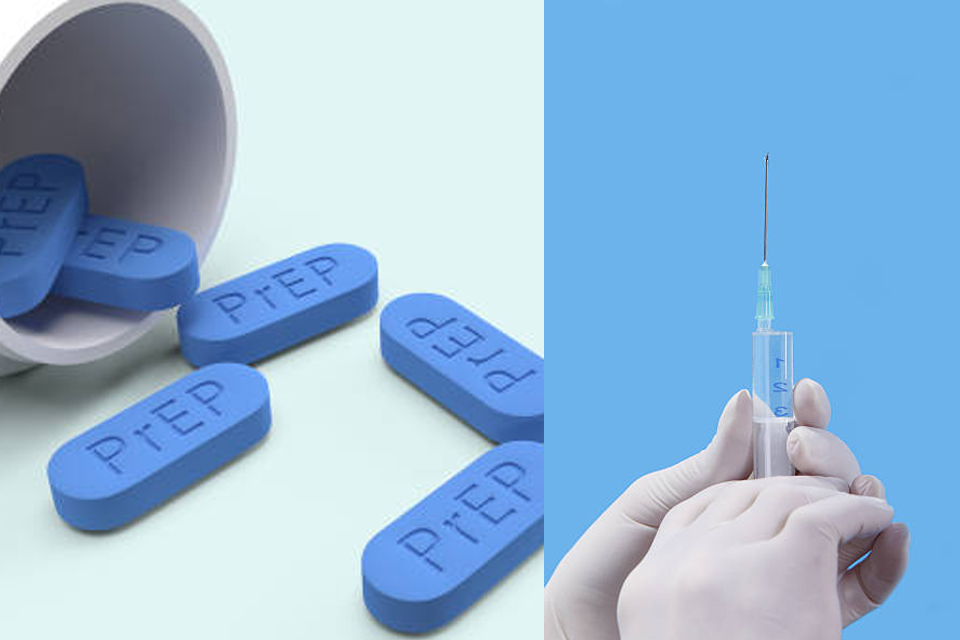By Lovemore Khomo

A 31 year-old Tendai Chigwada, who’s not her real name, a sex worker from Chinsapo Township, Lilongwe is one of the recipients of injectable cabotegravir as pre-exposure prophylaxis (PrEP) for HIV prevention.
Tendai has just switched from oral PrEP to new injectable ones after three years of taking pills since was introduced in 2020.
She narrates that decided to start taking oral PrEP after realizing that was on high risk to get infected with HIV.
“Since, I have been doing this (sex work), I felt that should start taking the pills from the time it was introduced. And with the coming in of injectable PrEP, it is a sigh of relief because I have also felt pill-burden.”
She expressed concern over oral PrEP which is supposed to be taken every day and depending on sex routine that, “sometimes it becomes difficult to swallow pills but injectable PrEP is making my life better.”
“Let’s commend government and CSOs on bringing in this drug, we are safe. I have experienced no side effects ever since and it is good.” She said
Oral PrEP was first introduced in Malawi in 2020, with an objective of supporting those most at-risk populations to HIV acquisition, including female sex workers, adolescent girls, women, men who have sex with men, the transgender community and people who use and inject drugs.
In September 2023, government together with other stakeholders launched an implementation science on injectable PrEP as a new intervention add up to a number of Malawi’s HIV combination prevention measures, but administering of the jabs began in March, 2024 as a pilot project.

National Aids Commission (NAC) pointed out that Malawi first received 5,400 out of 9,000 expected doses of injectable PrEP and will receive 10,534 doses in June, 21,257 doses in September and 19,319 doses in December 2024.
HIV Prevention and Management officer for NAC Francis Mabedi in an interview said Malawi adopted combination HIV prevention interventions as part of concerted efforts in the National HIV and AIDS Response aimed at ending AIDS as a public health threat by 2030 hence to include PrEP as an intervention.
“Apart from injectable PrEP the other combination prevention interventions include Post-exposure prophylaxis, condom use, voluntary medical male circumcision and early diagnosis and treatment for sexually transmitted infections.” explained Mabedi.

This comes as in 2022 Malawi recorded 15,000 new HIV/Aids infections where 15% fewernew infections were amongst women, and 22% fewer on men. According to NAC’s objective is to register less than 15,000 new infection by 2025 in a country where 11,000 die from Aids every year with prevalence rate being at 7% and 1,006,000 people are living with HIV.
He said, “The acceptability is high on injectable PrEP, as people are able to understand the importance of taking PrEP to avoid getting infected from HIV. The difference with oral PrEP is that they supposed to take it for some days, while this injectable one can be taken after a couple of months in a single jab dose.”
NAC’s HIV Prevention and Management Officer examined that when a recipient of oral PrEP stops taking the pills, “Science indicated that it quickly gets rid out of the body and they can switch to injectable ones.”
According to 2022 spectrum treatment cascade indicates that 98% of women are eager to know their status and 95 percent are viral suppressed than men who most of them do not seek health support, and it is crashing them.
In her comment, Edina Tembo Executive Director for Coalition of Women Living with HIV/AIDS in Malawi – COWLHA which creates a united voice of women and girls living with HIV and AIDS in addressing the challenges affecting them concurred that women are doing very well both on health seeking behavior and treatment than men.

“With the coming in of PrEP and dapivirine have contributed to the decline in numbers of women infected by HIV, as CSOs we encourages the use of condoms and be distributed to hard-to-reach areas for additional prevention measure for HIV and STIs.” explained Tembo.
She added, “Both injectable PrEP and dapivirine are on pilot phase and have been introduced to protect those who are negative from getting infected with HIV, with new injectable PrEP a ‘new milestone’ to Malawi.”
The 2021 MPHIA study found out that more breast feeding and pregnant women gets new HIV infections and government focuses on assessing and providing proper care throughout their pregnancy and after birth to ensure that the child is safe. For example, there is a programme of elimination of mother-to-child transmission which Government use to ensure children are born HIV free.
An HIV Prevention Advocate Prince Mikel Juao, who is one of the Cabotegravir champions and has been involved in advocating for introduction of injectable PrEP in Malawi, explained that he was prompted by interventions learnt across the boarders, he thought could also work in Malawi and deal with some of the problems experienced before introduction of injectable PrEP like inconsistence taking of the pills.
On the other hand, Juao expressed concern over the use of PrEP as a substitute for condoms, as new Sexual Transmitted Infections – STIs numbers skyrocket. “The challenge that I have witnessed people have substituted PrEP with the use of condoms where they take the drug as a pass-way or get-way to unprotected sex because many are not scared of STIs as long as they are taking PrEP and are protected from HIV.”
He advised people to know how to take PrEP and use condoms because the country use combination of HIV prevention measures as interventions where, “People think much as they are taking PrEP, they cannot use condoms. Therefore, the coming in of PrEP has contributed to increase in new STIs cases because aren’t consistently using condoms.”
Civil Society Organisations (CSOs) in Malawi have been using a community-based monitoring approach to assess the effectiveness, quality, accessibility, and impact on health programmes and services including on PrEP which has registered a tremendous acceptability rate since was introduced, with the new injectable being described as ‘a milestone’.
The HIV Prevention Advocate, who has also been a member of Expert Committee for Implementation Science Study of Cabotegravir Injectable PrEP shared that Community-led monitoring they came to learn that many people did not consistently take oral PrEP, for some feel pill-burden and they cannot take the drug for some days.
People see oral PrEP as another ARV as they do not have more information about the product. “Because of the package which is the same as for ARVs for treatment, people especially women fear to take oral PrEP, as their partners cannot differentiate with ARVs while others do not see oral PrEP as a means for helping them reduce the HIV acquisition risk.” He added.
Meanwhile, Director in the Department of HIV/AIDS and Viral Hepatitis under Ministry of Health Dr. Rose Nyirenda said the introduction of new injectable PrEP comes following 2023 assessment which indicated of high new HIV infections, hence the jabs could help to stop with such scenarios.
Dr. Nyirenda scientifically explained that government recommends injectable PrEP which is more effective as it could take a long period of time being active in a human body and could be administered on two months interval than oral PrEP which was designed to be taken on daily basis depending on sexual intercourse routine.

She maintained the position that they decided to implement the first phase of injectable PrEP in two districts of Lilongwe and Blantyre because recent data indicated new high infections rate in areas within these districts.
“We received a donation of 9,000 doses from the U.S which have been distributed to six health facilities in Lilongwe (Bwaila Hospital, Area 47 Drop-in and Area 25 Health Center) and Blantyre (Naperi Drop-in, Macro at Limbe and Chilomoni Health Center) which will guide to identify 41 health facilities to scale up campaign in September,2024.” said Dr. Nyirenda.
She therefore said government will continue with 2030 policy on eliminating HIV as a public health threat.
The Malawi Population-based HIV Impact Assessment (MPHIA 2020-2021) indicated that the country is doing well in the fight against HIV where there are reduced incidences from 4 per 1000 people to 2 per 1000 people in 2016 and 2021 respectively.
It pointed out that Malawi has met the second and third 95-95-95 targets years in advance of the 2025 target date, providing evidence of the strength of the country’s treatment programs. However, the target for HIV awareness remains below 90%.
MPHIA is a household-based national survey among adults from ages of 15 years and older to measure the impact of the national HIV response and offers HIV counseling and testing with return of results and collected information about uptake of HIV care and treatment services.


